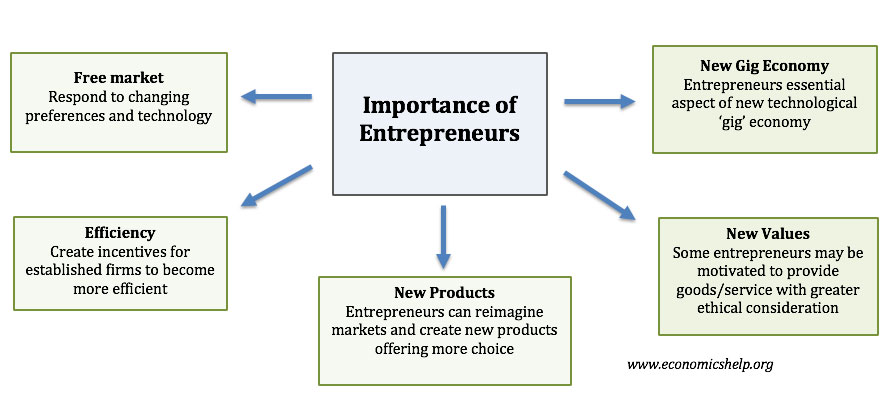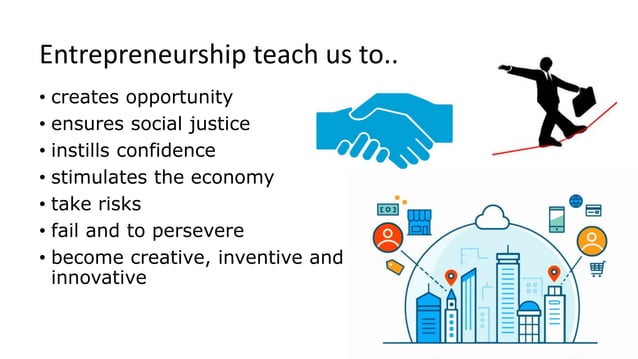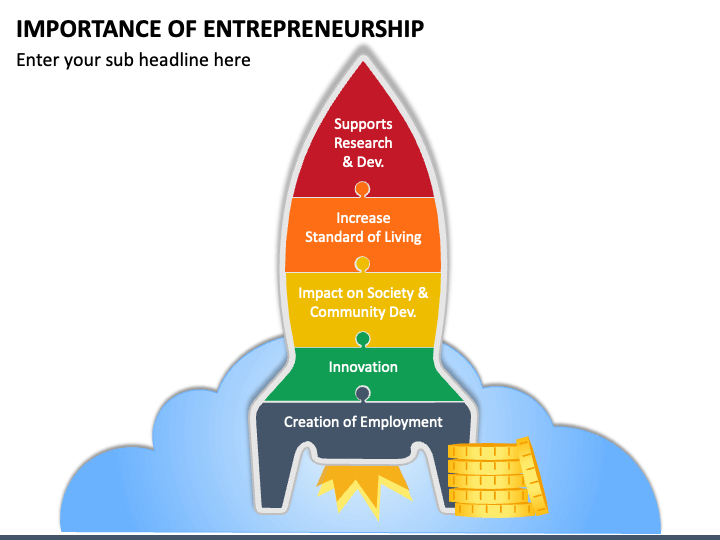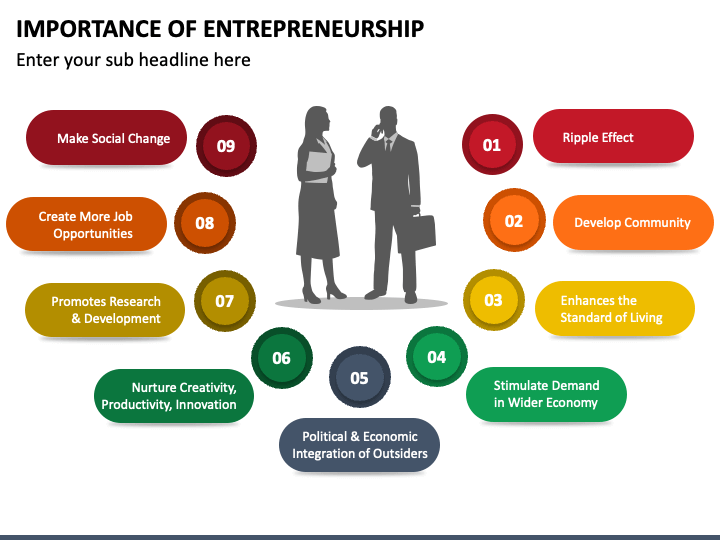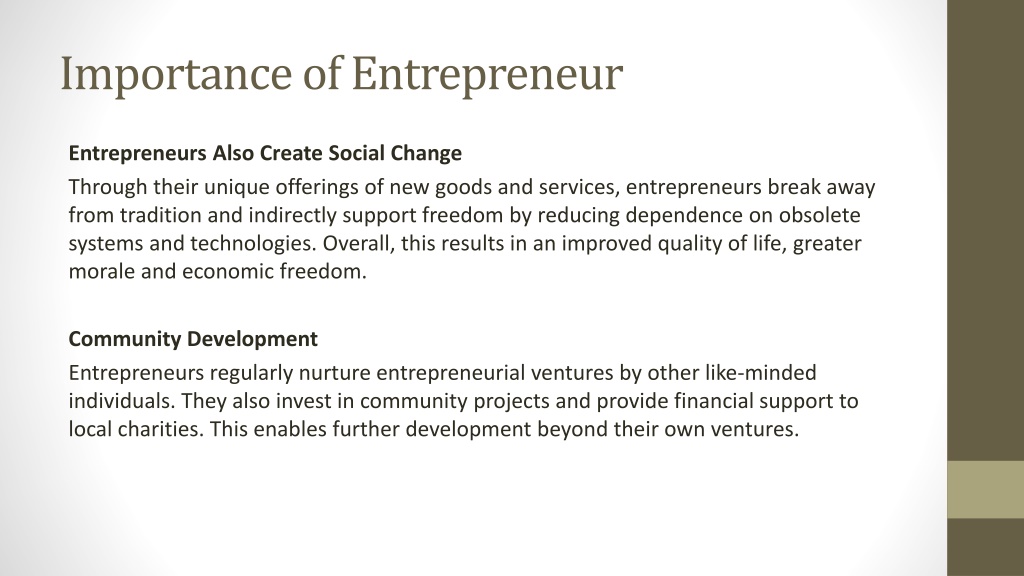What Are The Importance Of Entrepreneurship
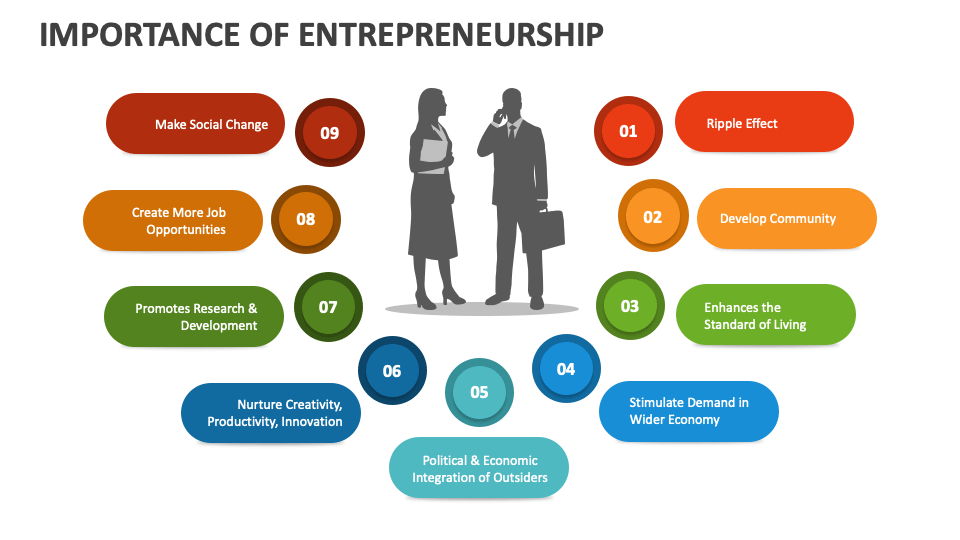
Imagine a bustling marketplace, not just filled with vendors hawking their wares, but buzzing with the energy of innovation. Each stall represents a dream, a solution, a spark of ingenuity brought to life. This isn't just commerce; it's the embodiment of entrepreneurship, the driving force behind progress and prosperity.
At its core, entrepreneurship is more than just starting a business. It is the relentless pursuit of opportunity, the willingness to take calculated risks, and the unwavering dedication to creating value. It is the lifeblood of a thriving economy and a catalyst for positive social change.
The Economic Engine
Entrepreneurship fuels economic growth by creating jobs. New businesses are significant employers, often hiring more rapidly than established companies, helping to reduce unemployment rates and boost economic activity, according to the Small Business Administration (SBA).
Moreover, entrepreneurs drive innovation. They are constantly seeking new and better ways to do things, developing groundbreaking products and services that disrupt existing markets and create entirely new ones.
Joseph Schumpeter, a renowned economist, coined the term "creative destruction" to describe this process, where innovation inevitably displaces old ways of doing things, leading to increased efficiency and productivity.
Beyond Profit: Social Impact
Entrepreneurship isn't solely about financial gain. Many entrepreneurs are driven by a desire to solve social problems and make a positive impact on their communities.
These social entrepreneurs create businesses that address issues such as poverty, environmental degradation, and lack of access to education or healthcare. They prove that profit and purpose can coexist, creating a more equitable and sustainable world.
For example, a social enterprise might provide job training to disadvantaged individuals, or develop affordable clean energy solutions for underserved communities.
Fostering Innovation and Resilience
Entrepreneurship encourages a culture of innovation. By challenging the status quo and embracing experimentation, entrepreneurs foster a mindset of continuous improvement and adaptability.
This is especially important in today's rapidly changing world, where businesses need to be agile and resilient to survive and thrive. The ability to identify opportunities and adapt to new challenges is a crucial skill for individuals and organizations alike.
According to the World Economic Forum, entrepreneurial skills such as problem-solving, critical thinking, and creativity are increasingly valued by employers in all sectors.
Empowering Individuals and Communities
Entrepreneurship empowers individuals to take control of their own destinies. It provides an opportunity to build something from the ground up, to be their own boss, and to pursue their passions.
It also fosters a sense of ownership and pride, as entrepreneurs are directly responsible for the success or failure of their ventures.
Furthermore, entrepreneurship can revitalize communities. Small businesses are often the backbone of local economies, providing jobs, goods, and services that meet the specific needs of the community. They contribute to the unique character and identity of a place.
The Future of Entrepreneurship
As technology continues to evolve and global challenges become more complex, the importance of entrepreneurship will only continue to grow. We need innovative thinkers and problem-solvers who can develop creative solutions to address these challenges.
Supporting entrepreneurship through education, access to capital, and supportive policies is essential for fostering economic growth, social progress, and a more resilient and innovative future.
By cultivating an entrepreneurial mindset, we can empower individuals and communities to create a brighter future for themselves and for the world.


